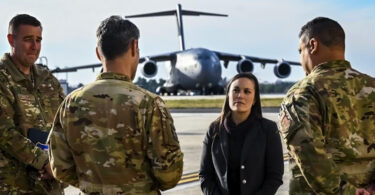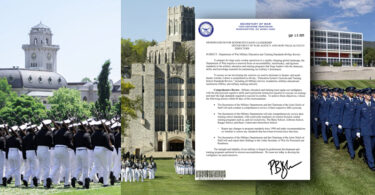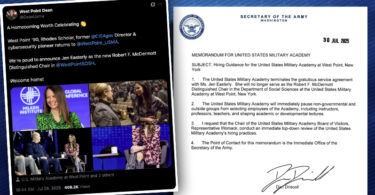By Jane Hampton Cook
Member STARRS Board of Advisors
One of the most important lessons we can learn today from George Washington is to know the enemy. Although he is known as The First American for defeating the elitist tyrannical British military, Washington’s awakening to the British as an enemy began 20 years before the American Revolution!
As I documented in Stories of Faith and Courage from the Revolutionary War, Colonel Washington was part of a combined British force of 1,300 soldiers from Virginia and England who fought the French in 1755 in Ohio.
Several hundred Frenchmen and their native allies hid behind trees and ambushed the British.
“We have been most scandalously beaten,” Washington wrote to his family.
“I now exist and appear in the land of the living by the miraculous care of Providence that protected me beyond all human expectation,” Washington explained of God’s presence.
“I had four bullets through my coat, and two horses shot under me, and yet escaped unhurt,” he recounted. A minister prophesied that Washington survived so he could be of great future service to his country.
While marveling at the angelic mystery behind his miraculous survival, Washington also experienced an awakening to the seedling enemy within.
The British soldiers “were struck with such a panic that they behaved with more cowardice than it is possible to conceive.”
Washington was angry because the British soldiers had abandoned the Virginians. Though the redcoats pretended to view their Virginia counterparts as equals, their actions betrayed their true haughty character.
“In short, the dastardly behavior of those they call regulars exposed all others… They ran as sheep pursued by dogs and it was impossible to rally them.”
This planted a seed of doubt about the British loyalty to America in Washington’s mind. As conflict with England grew over the next 20 years, Washington refused to be fooled by the king’s pretentious words and instead focused on his actions.
When a friend hoped the king would repeal new taxes and martial law in 1774, Washington didn’t buy it. The “government is pursuing a regular plan at the expense of law and justice, to overthrow our Constitutional rights and liberties.”
Washington would also recognize the Chinese Communist Party’s tyranny. As he did with the British, he would see beyond their pretension and identify their threat to liberty.
He would be more clear-eyed than Joint Chiefs of Staff Mark Milley, who doesn’t acknowledge the CCP’s unrestricted warfare strategy. “I would hesitate to call China an enemy. Some would say adversary. Others would say enemy. Some would say hostile,” General Mark Milley said at a 2017 warfare conference. “They’re a competitor and the competition between the United States and China has a military dimension to it, but that is a far cry and that’s a long leap between that and enemy.”
Milley’s milquetoast views are surprising because the CCP published their doctrine of atypical unrestricted warfare in a 1999 book. They claimed the future would focus on biological, cyber, financial, trade, cultural and information warfare.
While Milley doesn’t measure up, other military members understand China’s threat. General Washington would recognize their thinking. “China went to war a long time ago, but the US didn’t (want to) notice,” retired Marine officer Grant Newsham recently wrote.
Reflecting on the military’s oath to “defend the Constitution against enemies foreign and domestic,” an Army sergeant first class explained that it’s important to defend against lesser-known domestic enemies seeking to destroy America.
“Today we face an adaptive and asymmetric enemy. War is not always defined and the battlefield changes constantly,” he said, pinpointing information warfare through media narratives.
“The target of an enemy can be the mind of the civilian population. The opinion of the public can be shifted to ultimately achieve the enemy’s objectives. This involves the manipulation of the truth in combination with falsehoods, misleading, and manipulated media and psychological warfare.” These attacks are everywhere.
“We have seen all aspects of information warfare being played out in order to subvert the morale of Americans. Turning us against one another and misrepresenting the truth. Infiltration of Marxism into every institution in America. Redefining what it means to be an American and the American ideal.” The Constitution matters.
“The founding documents are the objective definition of what this country stands for, and what defines the United States,” he said, noting that domestic enemies are destroying America’s way of life. “We need to be able to identify what the threat is, and we need to be able to identify what we are protecting. If we are no longer able to identify what we are protecting, then the line has already been broken. Define America, and know exactly what it stands for, then you will be able to define what a domestic enemy is.”
Washington feared this day would come, which is why he warned us to be vigilant “against which the batteries of internal and external enemies will be most constantly and actively (though often covertly & insidiously) directed.” We need to heed his words and awaken to today’s enemies to preserve our union.
Jane Hampton Cook is the author of 10 historical books, including Stories of Faith and Courage from the Revolutionary War. Janecook.com








Leave a Comment